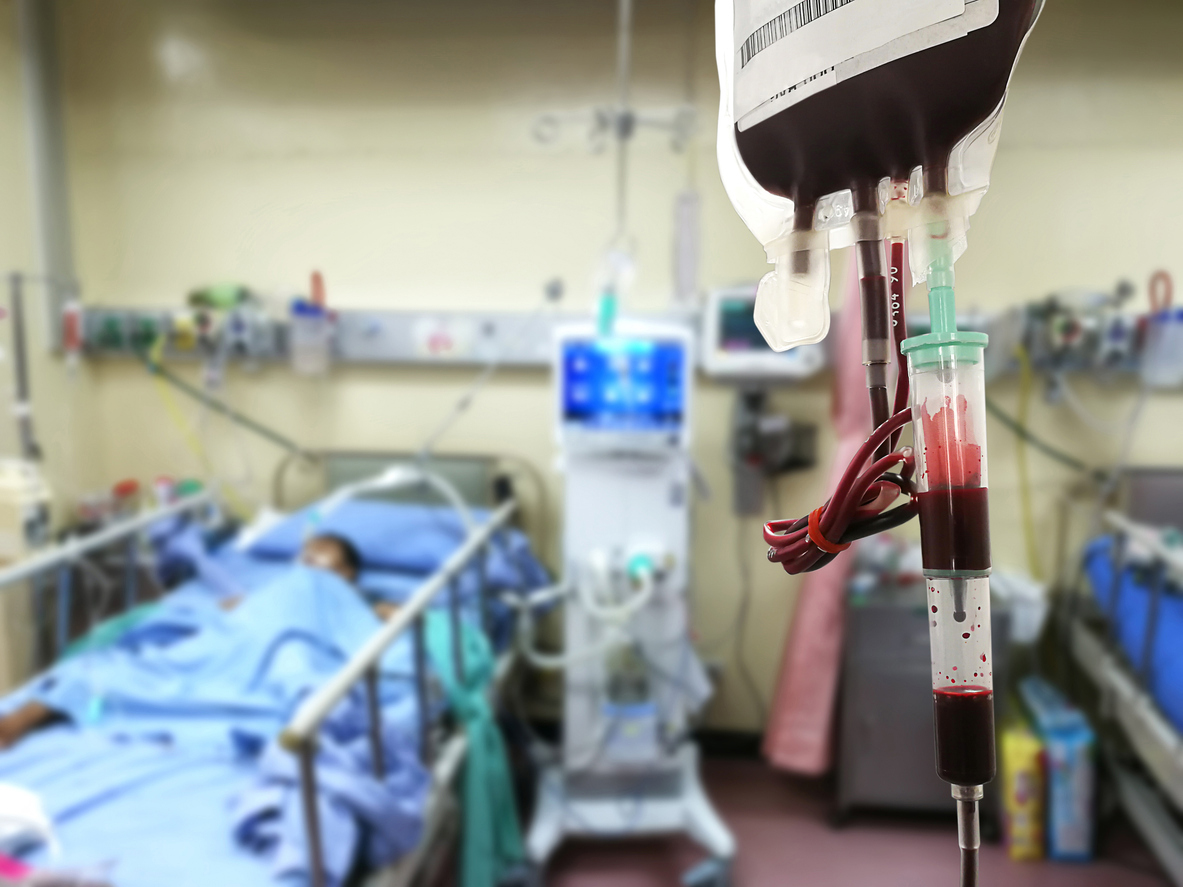why is blood kept at 4 degrees and what is blood bank refrigerator
Why is blood kept at 4 degrees and what is blood bank refrigerator
Blood is an excellent culture medium for bacterial growth; therefore it is stored in approved refrigerators at 2-6°C, where it has a shelf life of 35 days from donation. There are legal requirements for temperature regulation and alarm systems for storage of blood. The hospital has approved Blood Bank refrigerators located in the Blood Issue room in Pathology and in the store room in Theatres.

Storage of red cells at 4 °C decreases the metabolic rate of the cell and enables blood to be stored for longer periods. At higher temperatures, the rate at which glucose is consumed and lactate produced is increased, leading to a lowering of pH. This is turn stimulates 2,3 DPG phosphatase, resulting in a rapid reduction of 2,3 DPG, a molecule that competes with oxygen for the same site on the haemoglobin molecule, reducing the oxygen affinity of haemoglobin and increasing oxygen delivery to the tissues. At 30 °C it has been estimated that within four hours 2,3 DPG will have fallen to 35% of the initial concentration, and it will be totally depleted within 18 hours.

Blood must never be stored in domestic or other refrigerators. Blood should be removed, one unit at a time, from the Blood Bank refrigerator only when a transfusion is due to commence within 30 minutes. Transfusion must be completed within 4 hours of removing the pack from the Blood Bank refrigerator to avoid the risk of bacterial growth.

Bacterial contamination of blood products may be the single largest cause of death from transfusion accidents. If a unit of blood has been out of the refrigerator for more than 30 minutes and there is no prospect of its imminent transfusion, the Blood Bank must be informed and the unit marked as "Unsafe to Transfuse." The unit is then to be brought directly to a member of staff in the Blood Bank for safe disposal.
